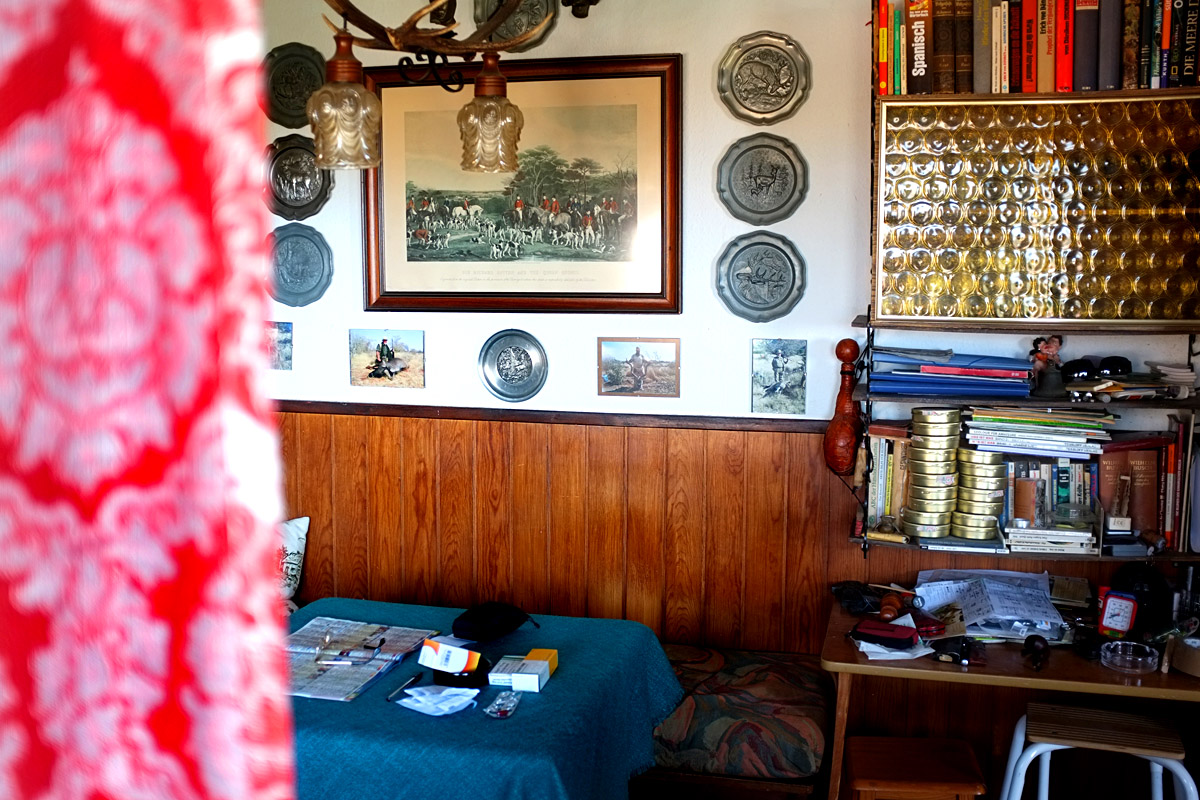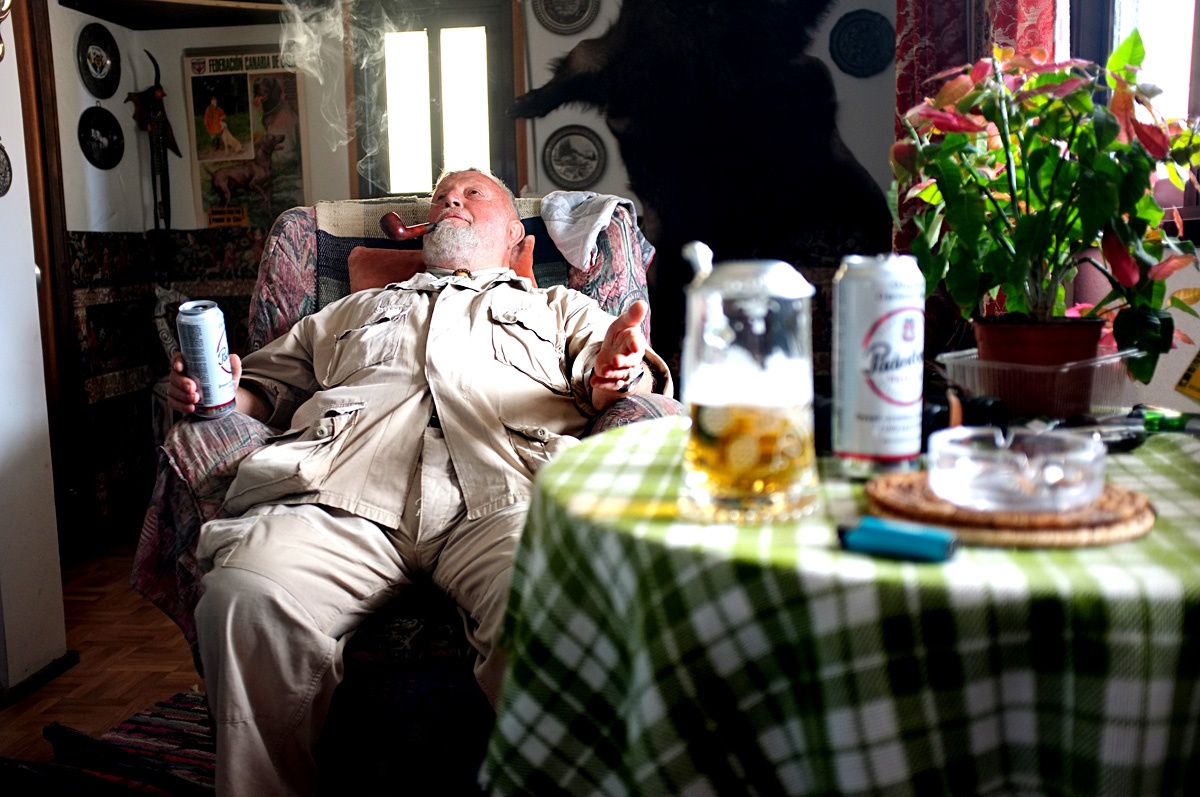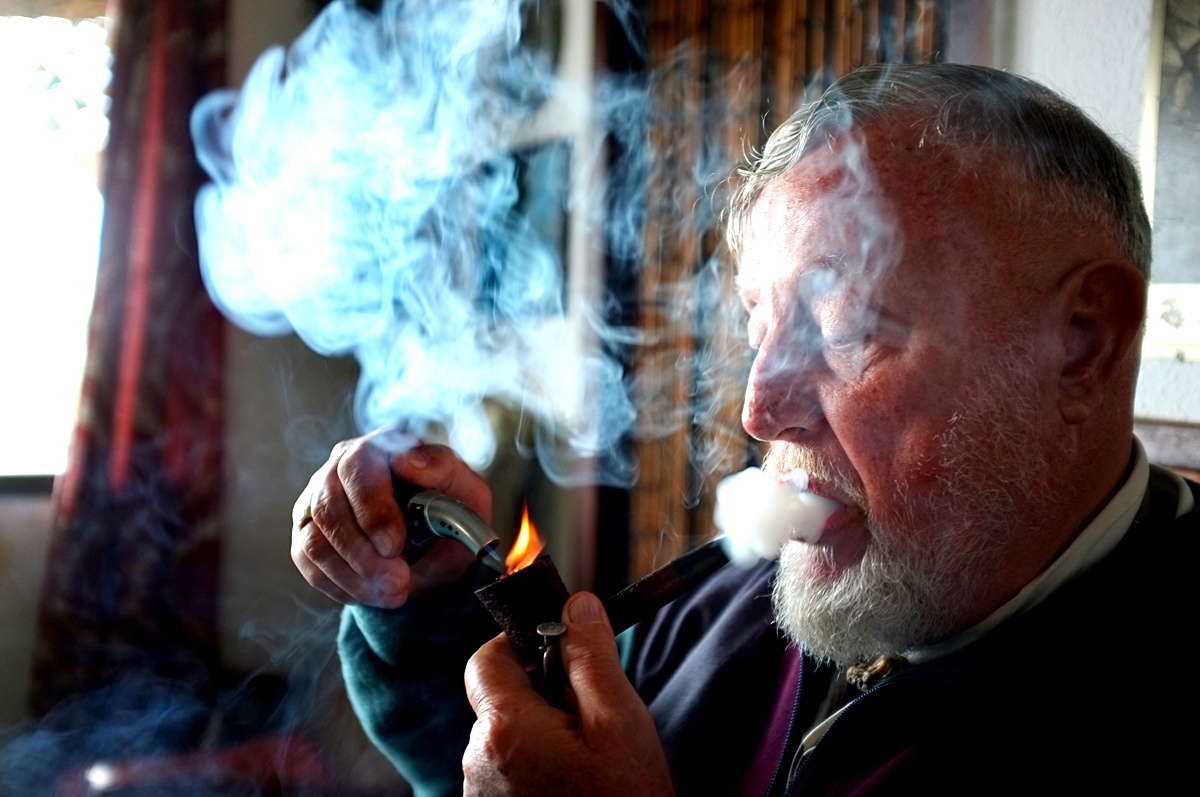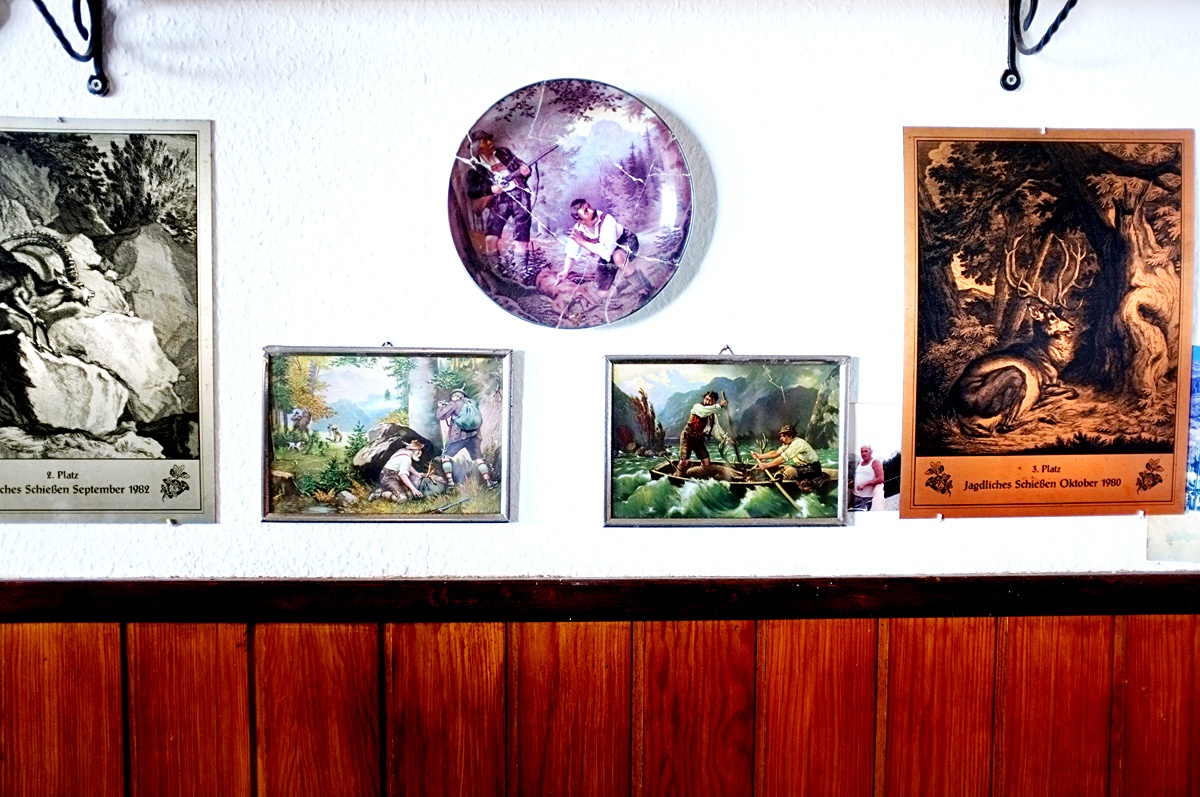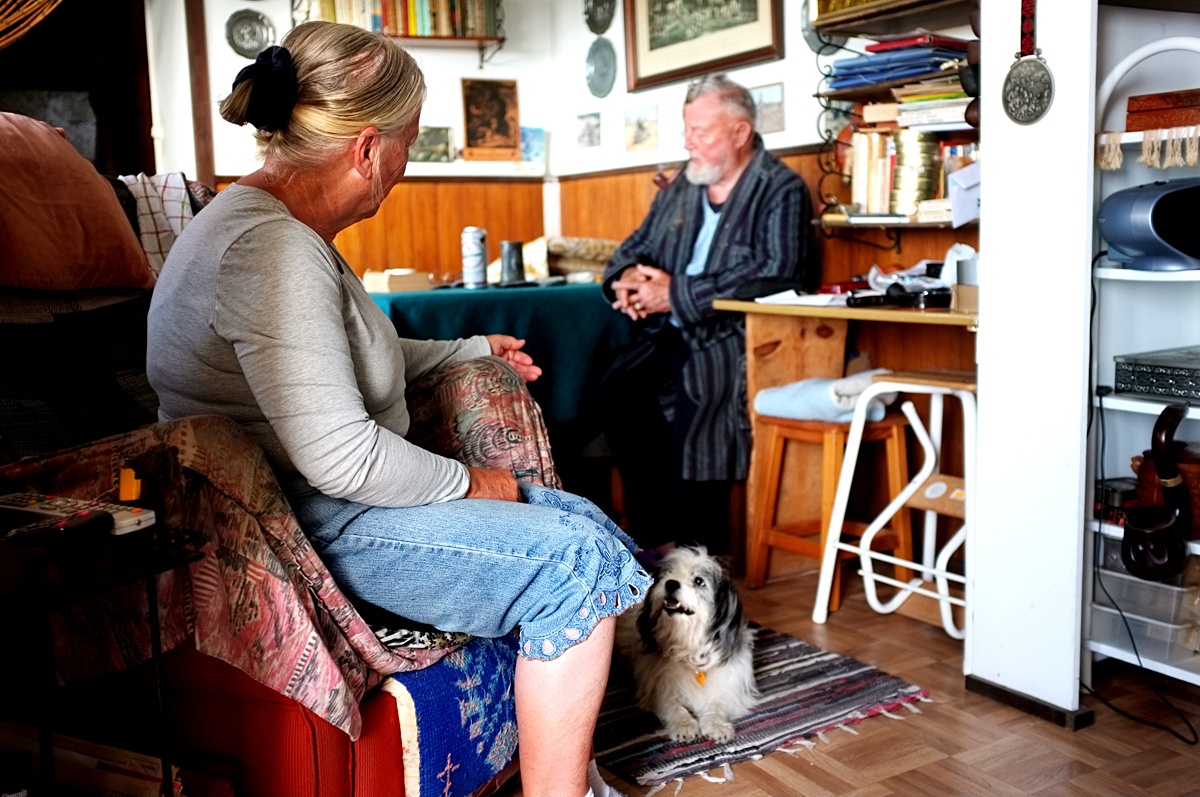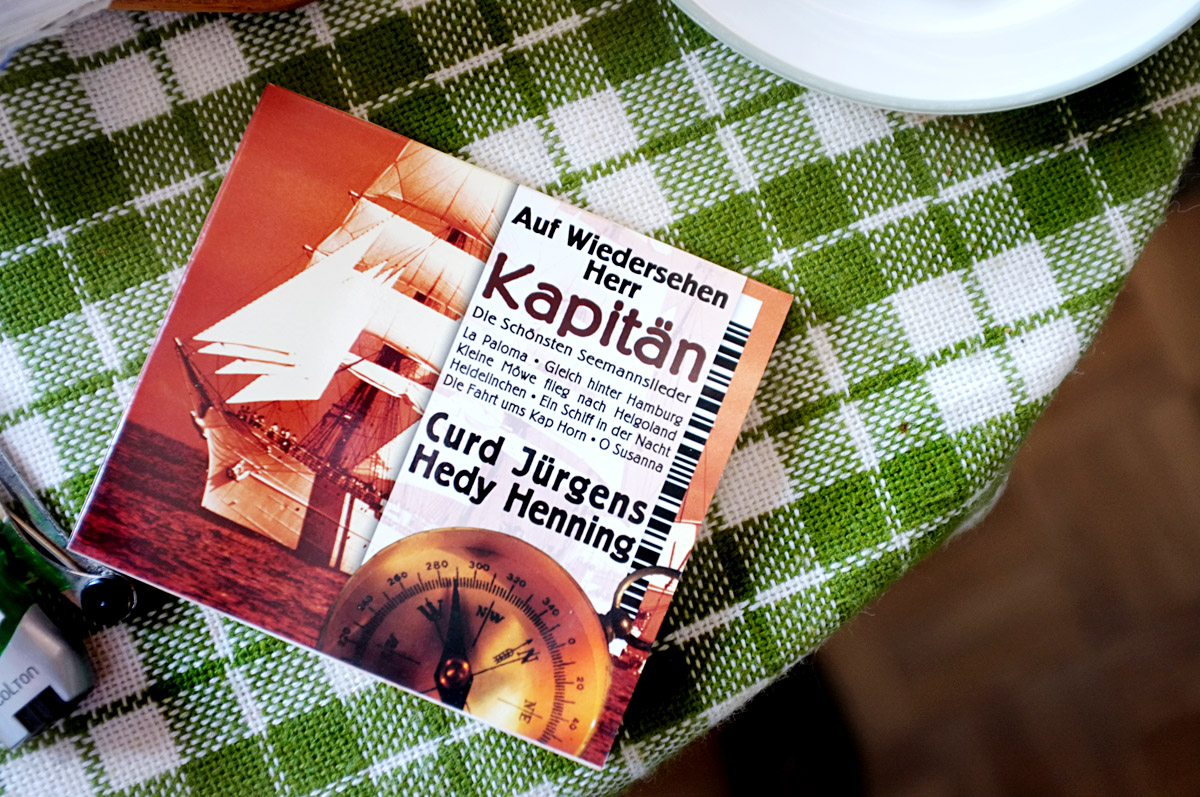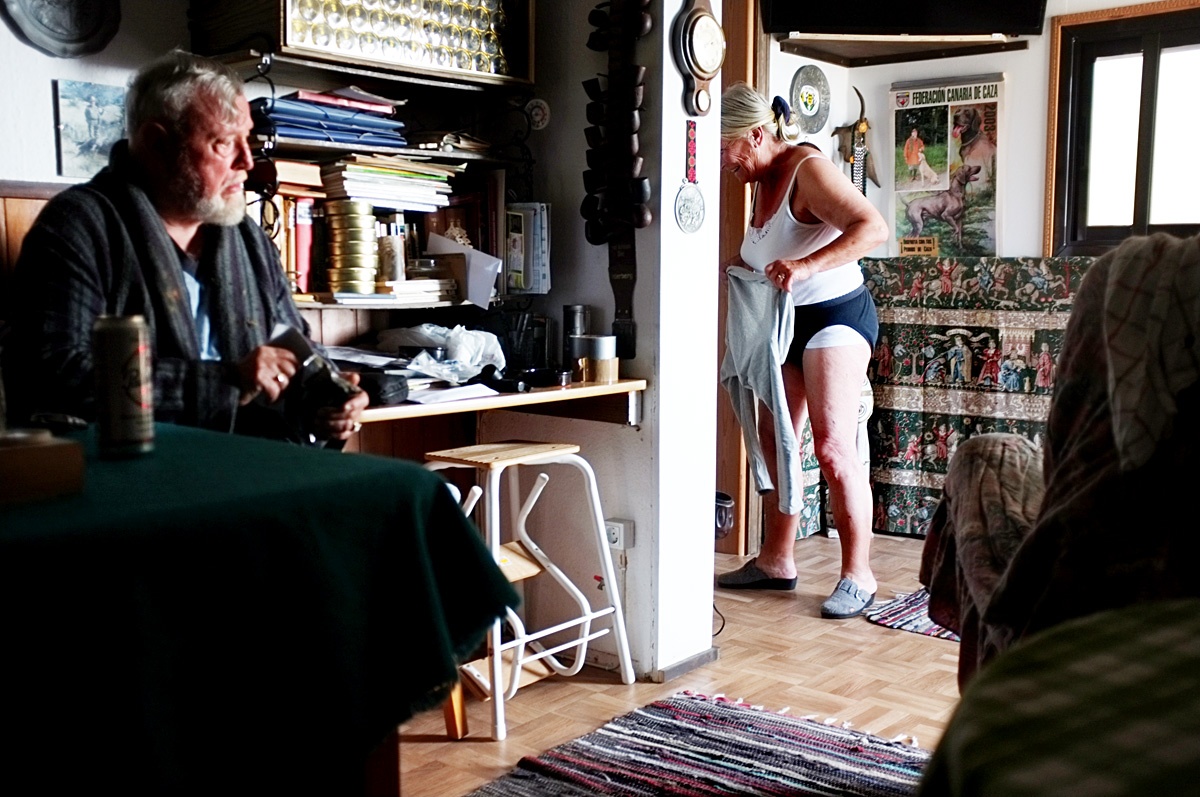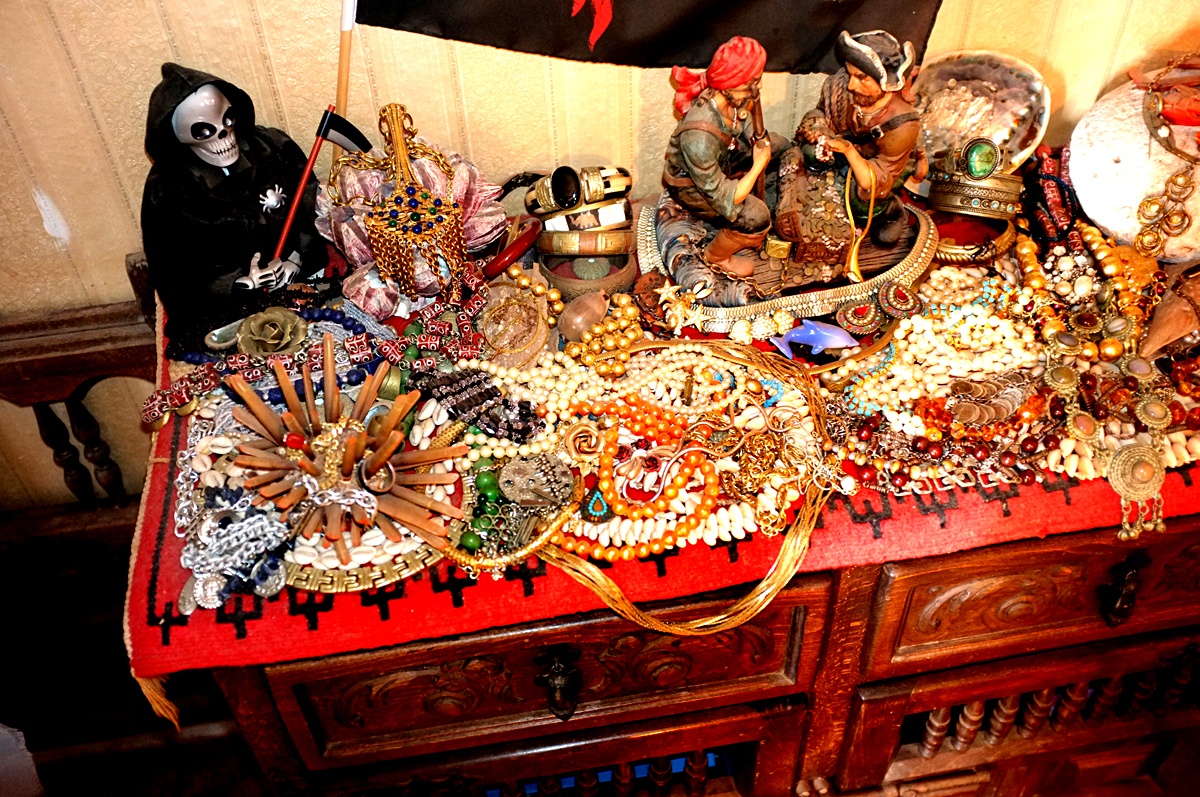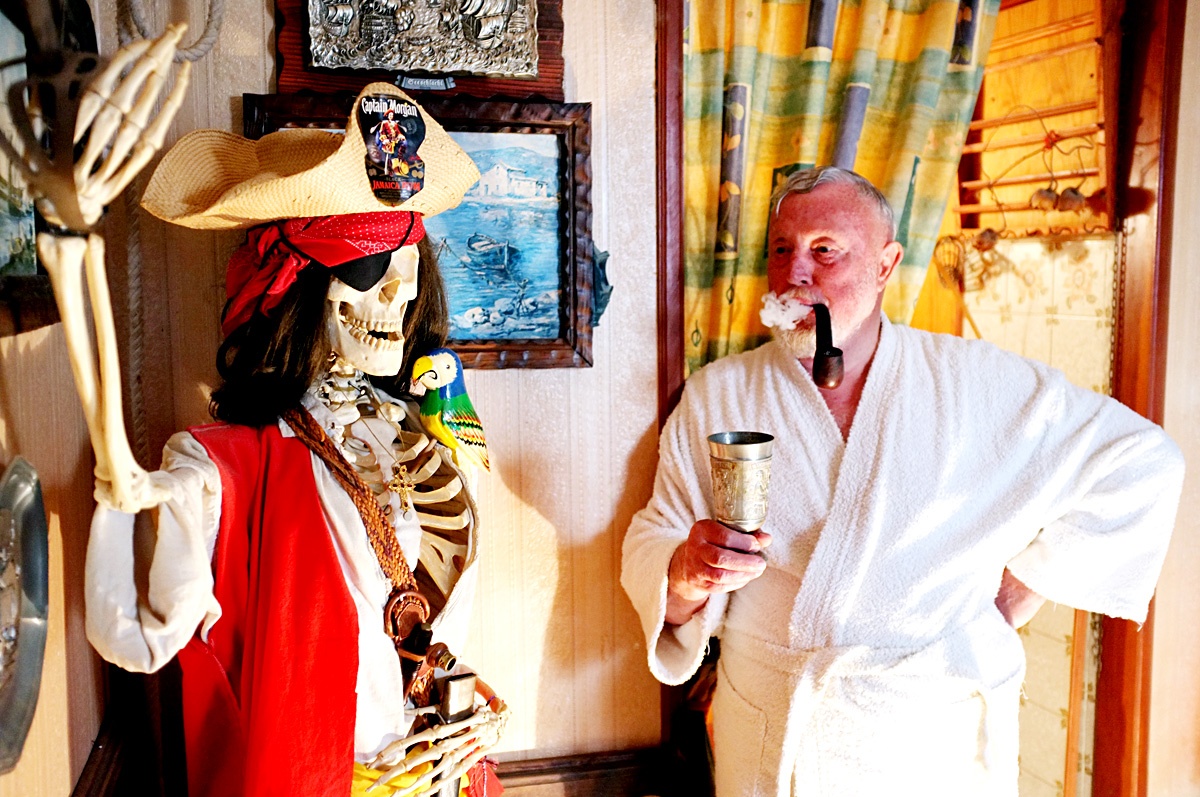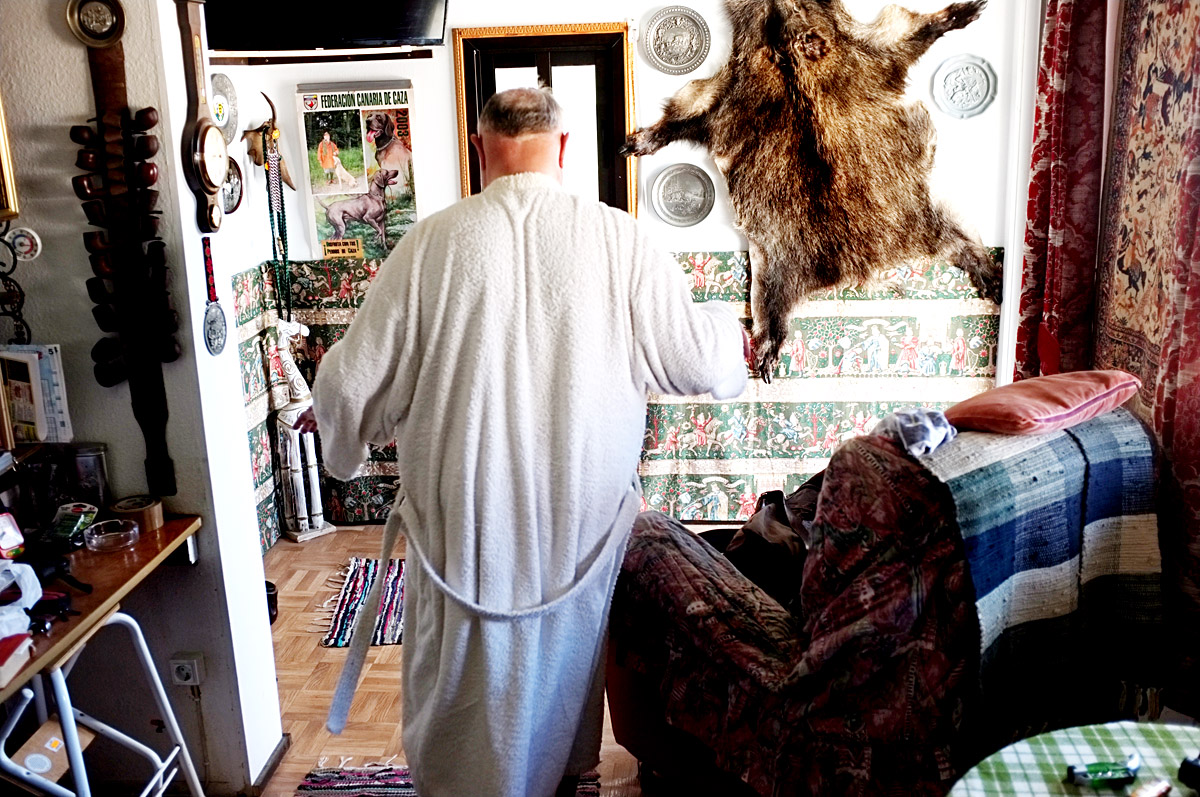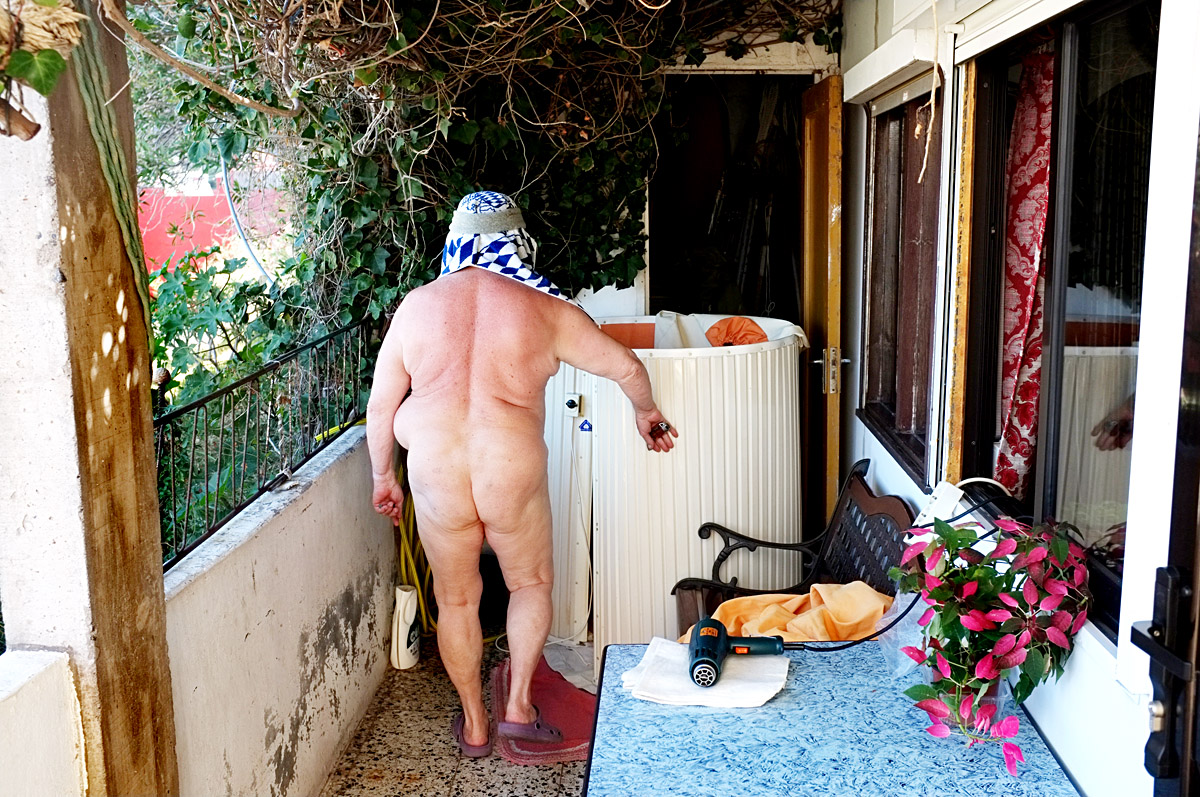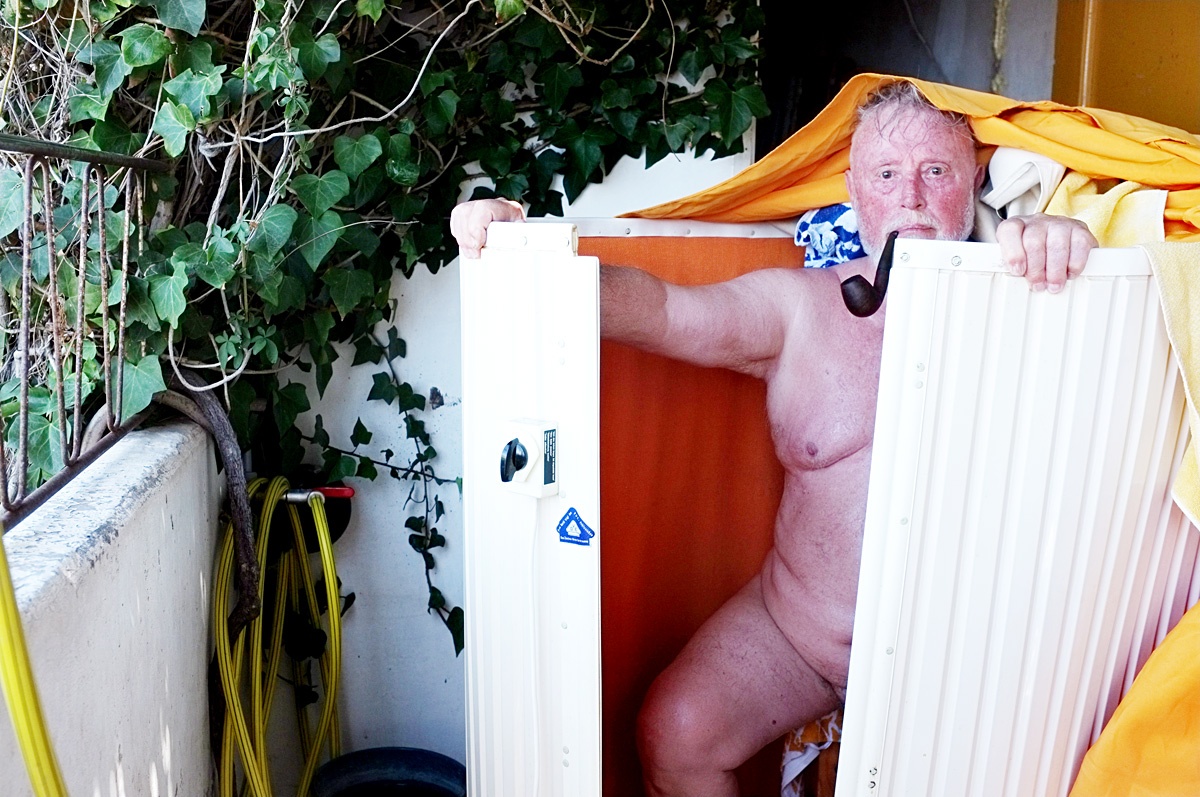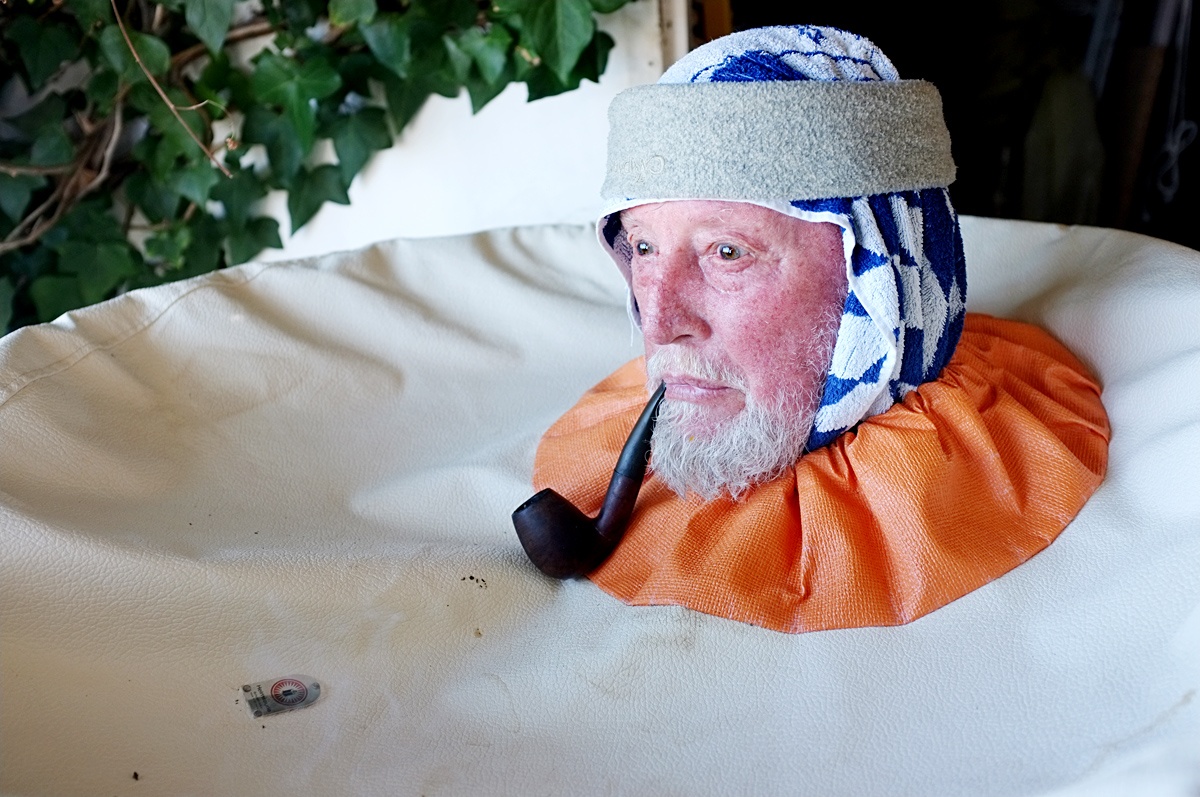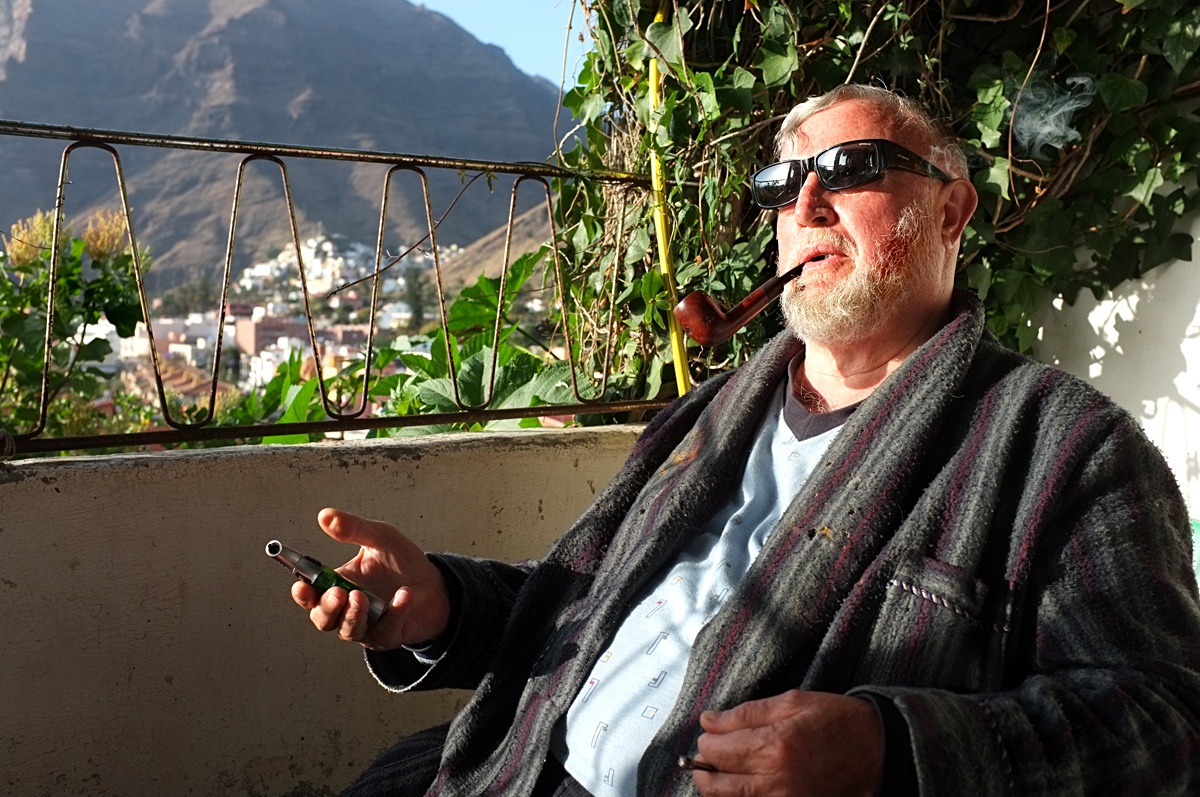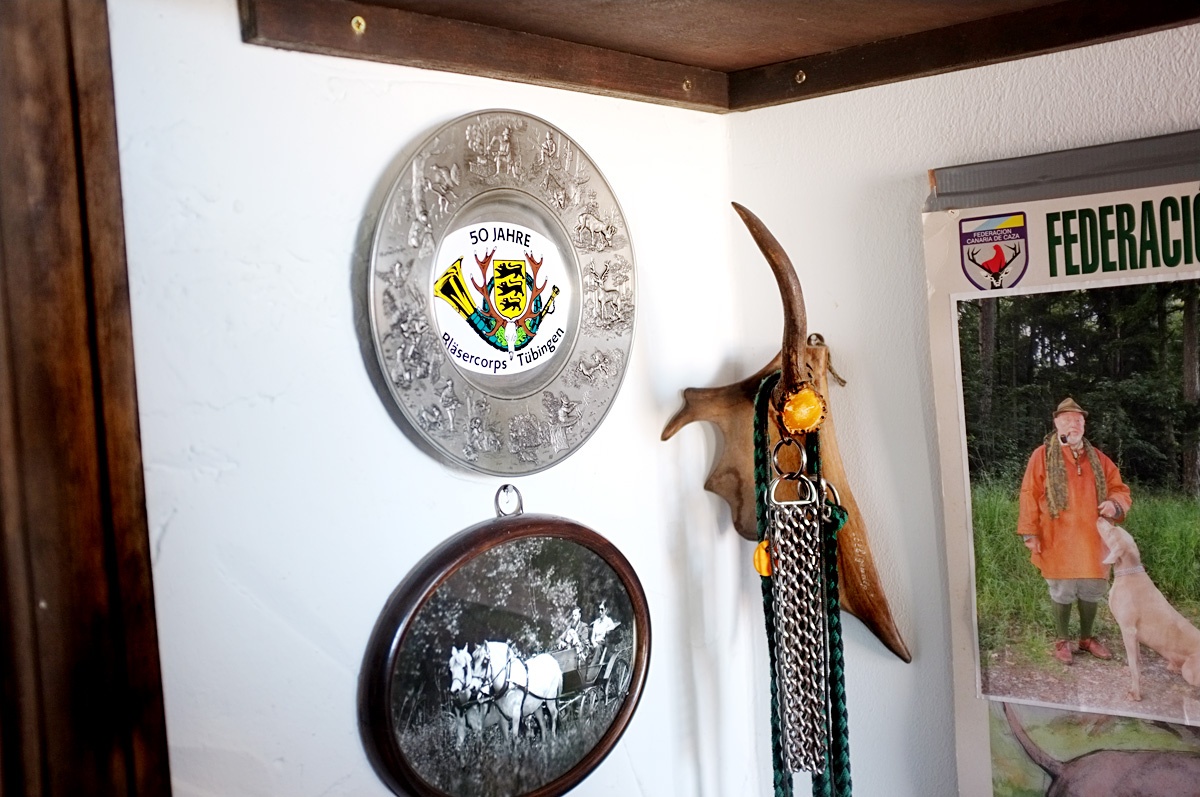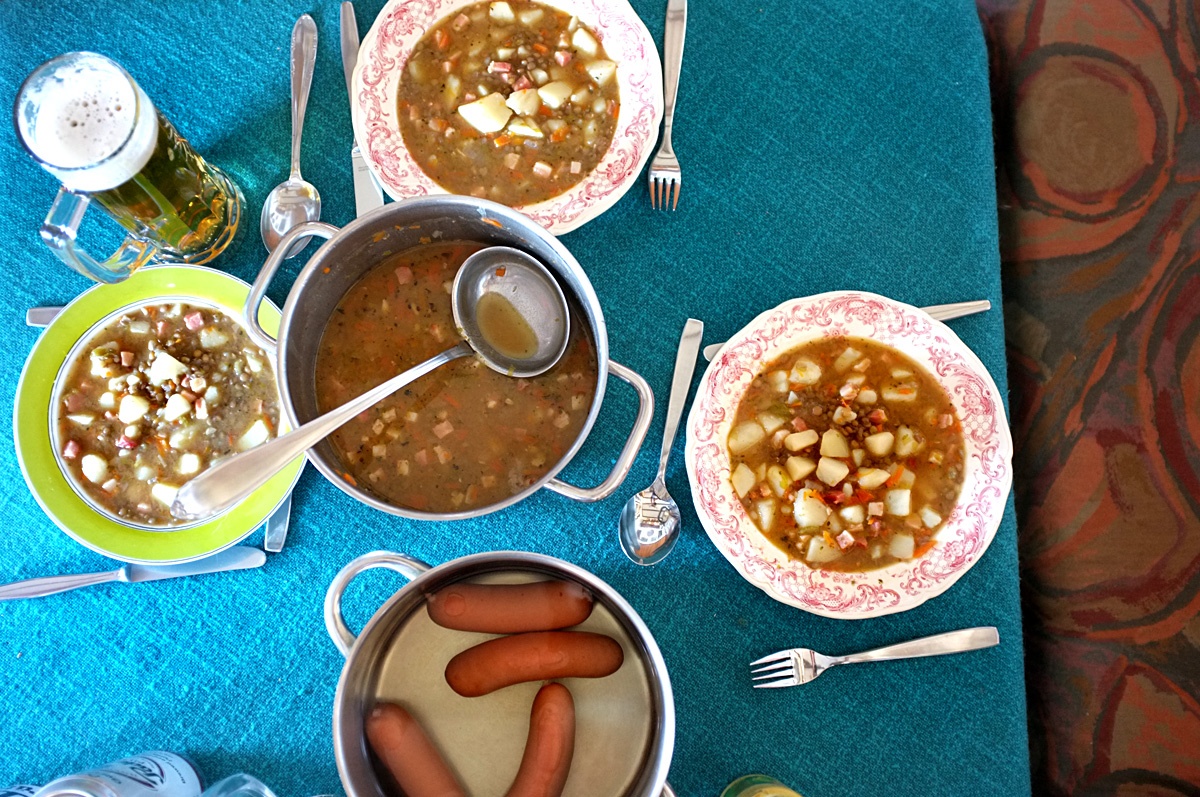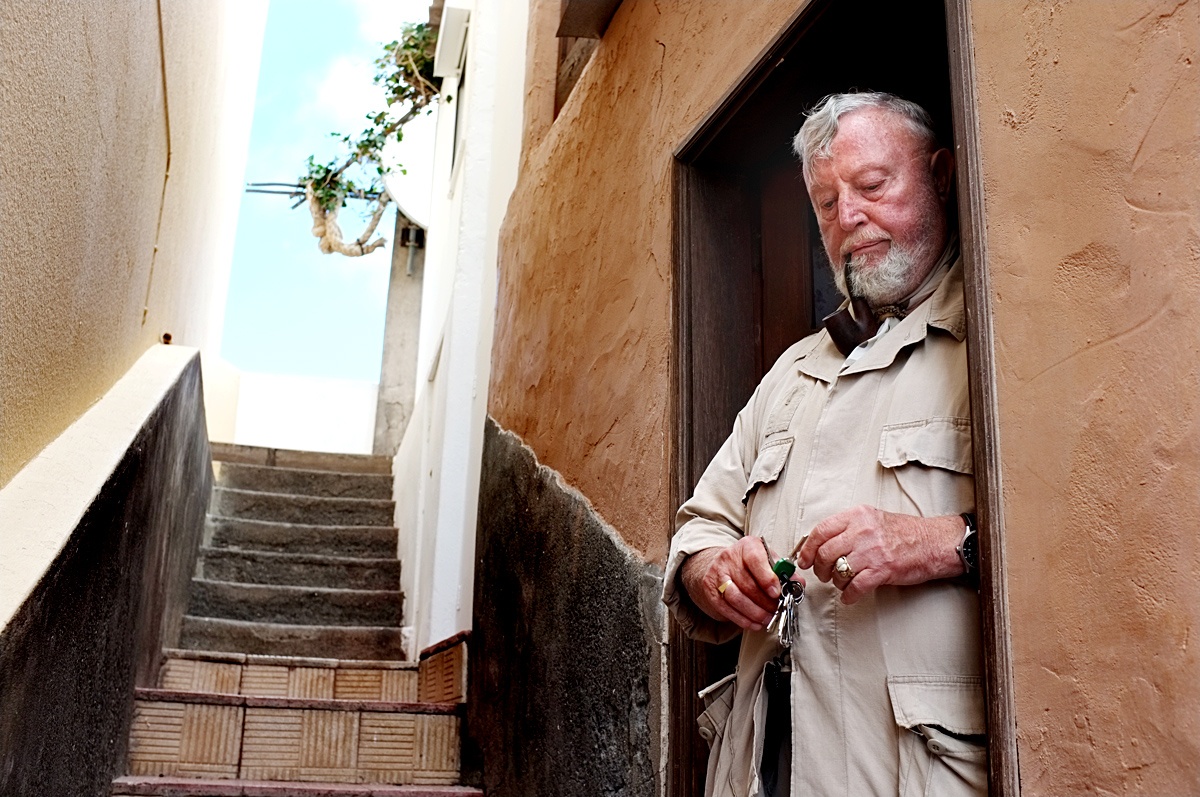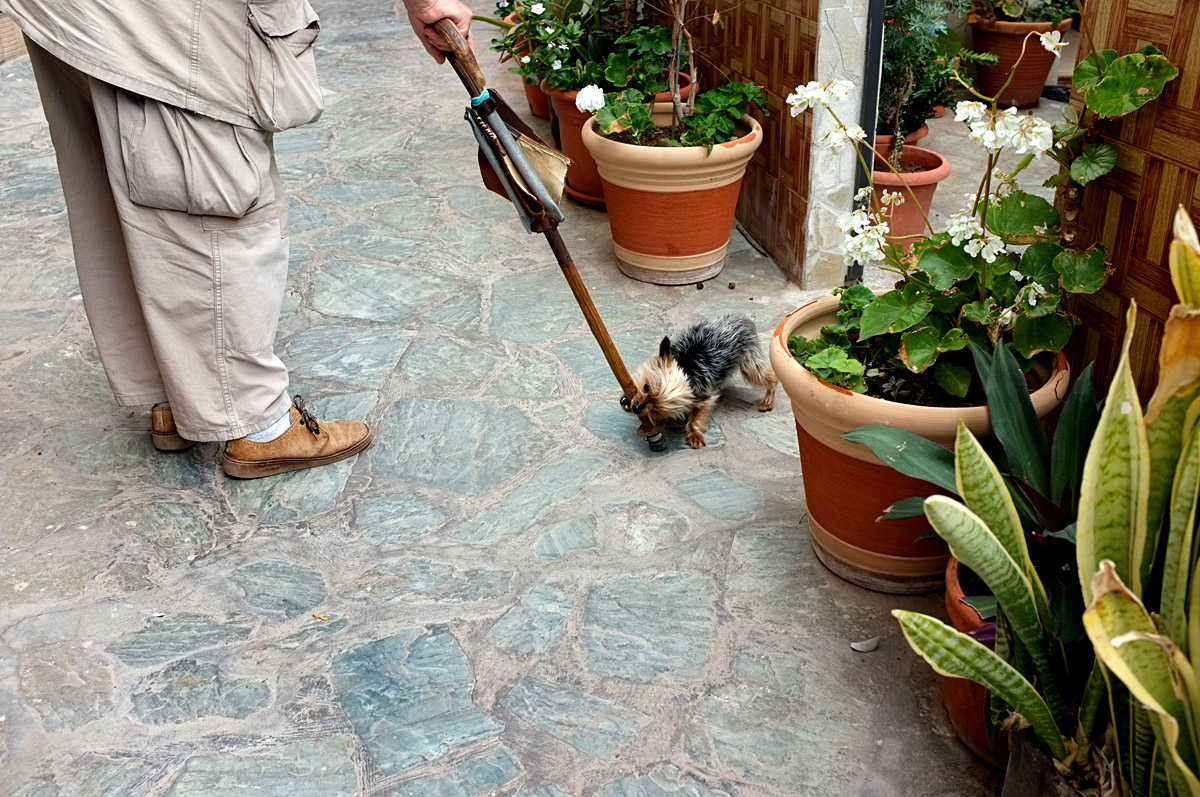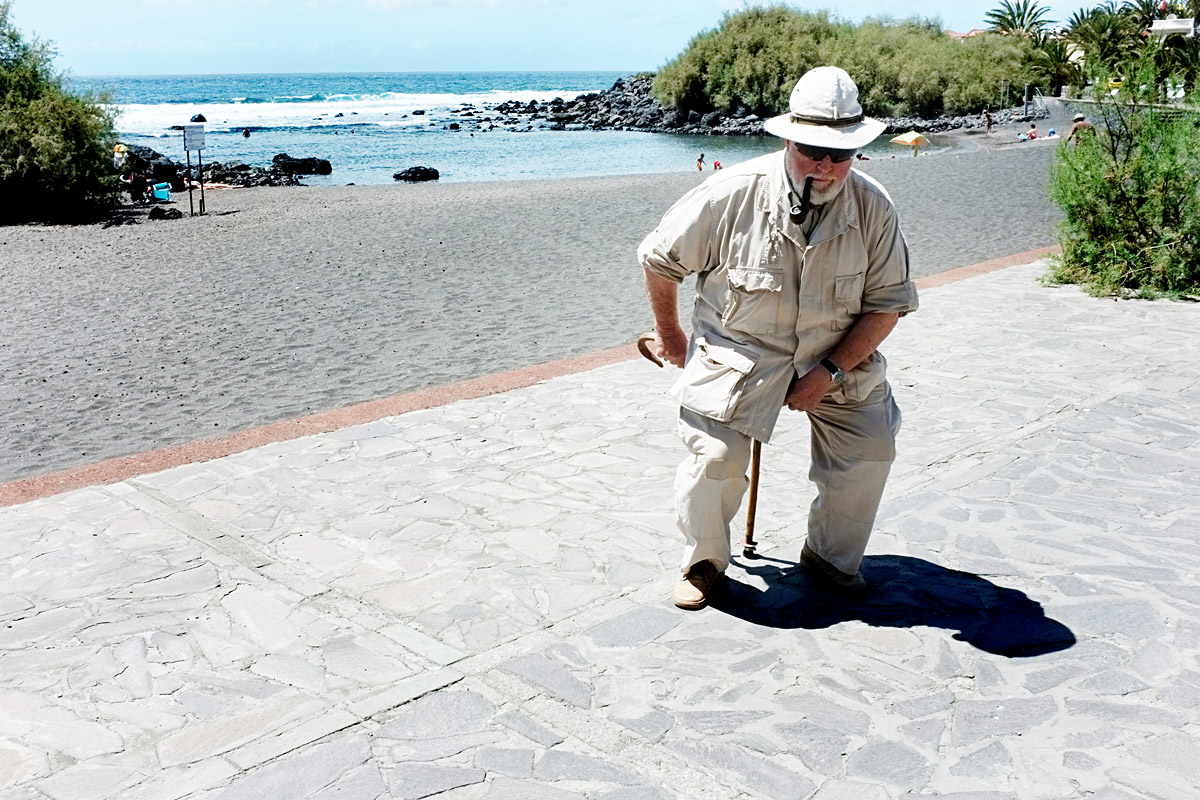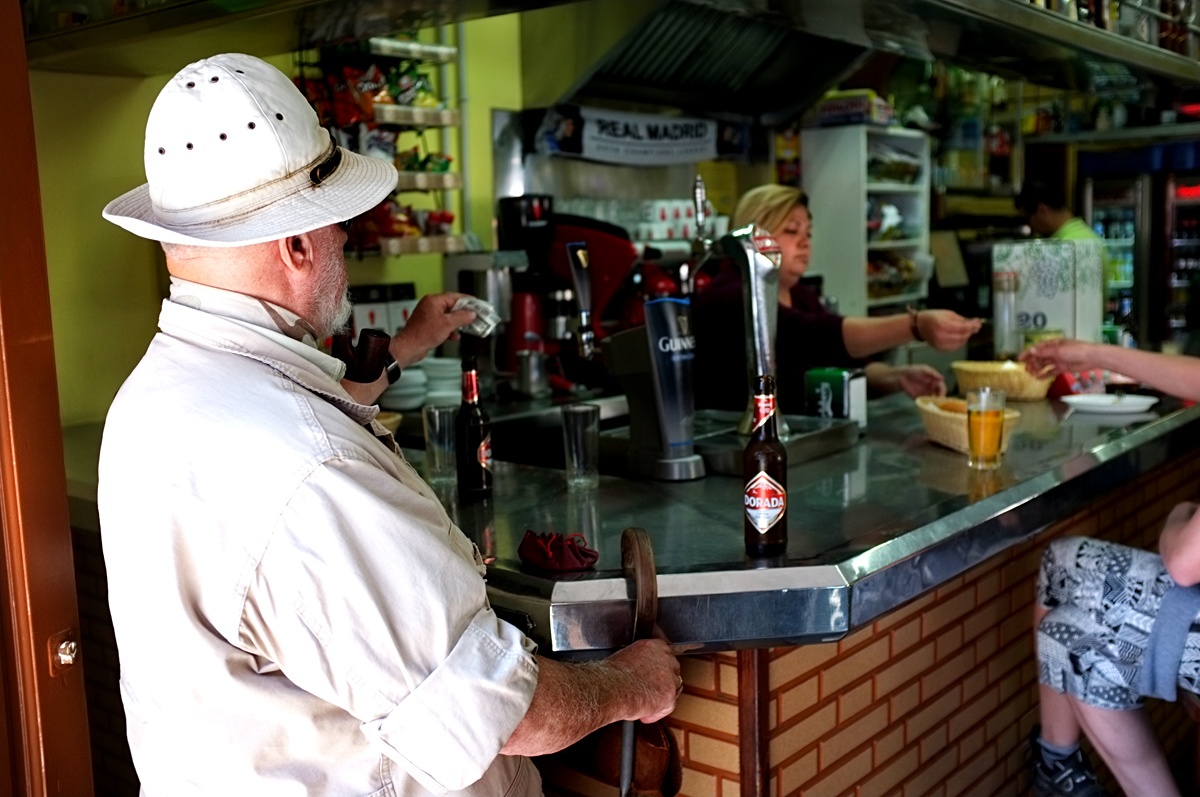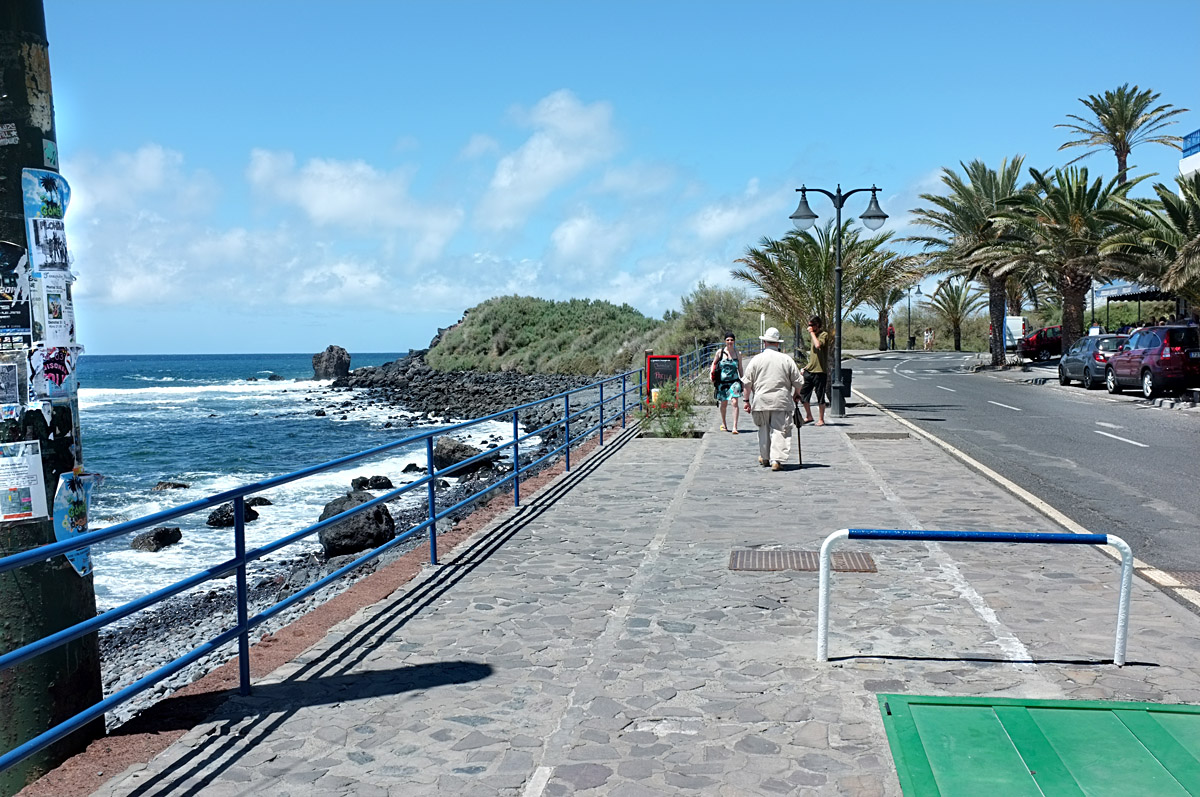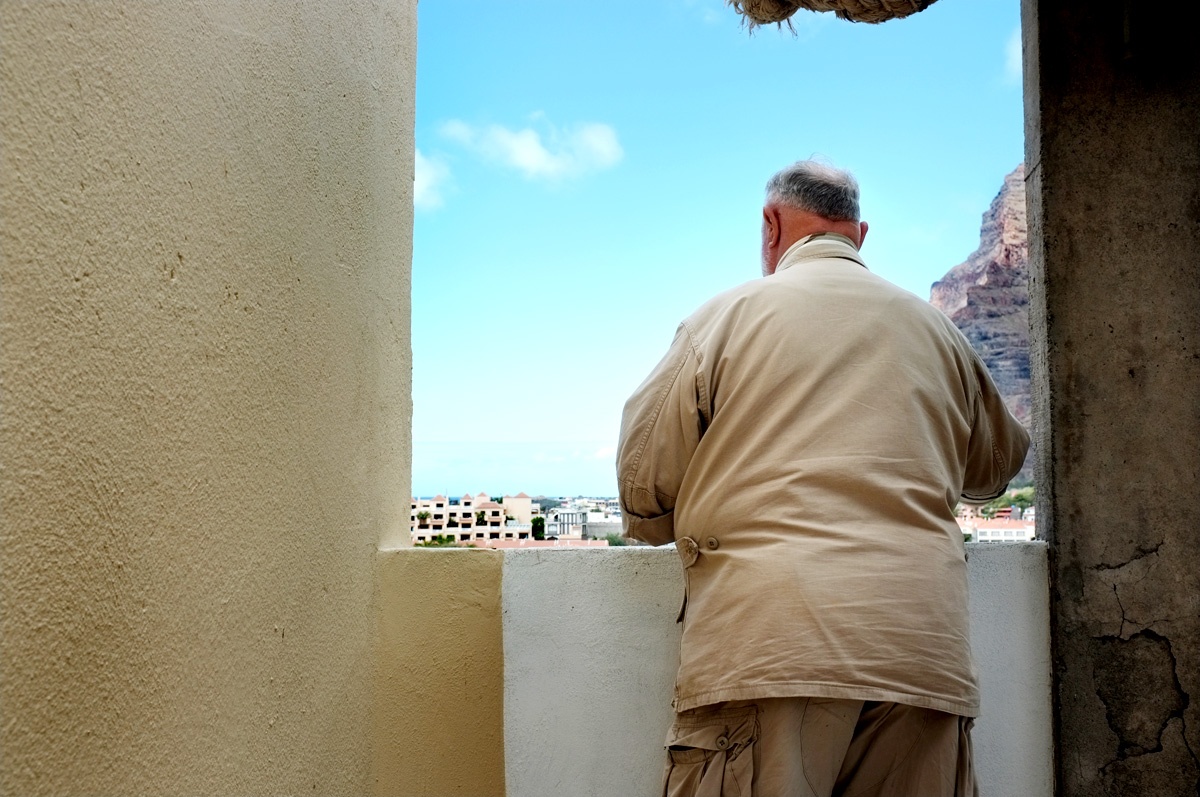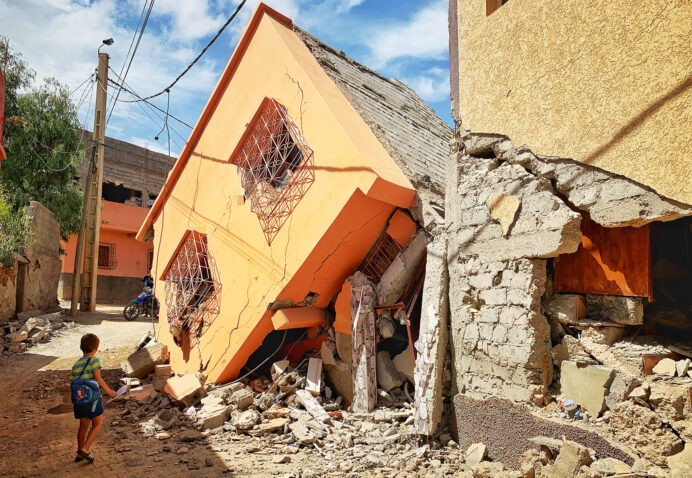It is a Sunday in April. A strong, gusty wind on the Canary island of La Gomera. I am sitting in a dark living room. Time seems to stand still.
Around me furnishings in the style of “Rustic German” dating from the 1970s. Hunting trophies, a skeleton, a treasure chest, swords and books. I am not alone. With me is Captain Flint.
Little burn holes, caused by one of his about 120 pipes decorate his dressing gown. We stare together at the swell of the waves and listen to music of the 50s – old sailor songs. The windows are closed. Flint can’t bear draughts, and so the room gradually fills with his pipe smoke. He offers me a lukewarm beer. “You know?” he says and begins telling me about his past. His training in the German Democratic Republic as a preparator of corpses for medical students and his escape to the West in 1958, his unsuccessful first jobs until he finally found employment with the distinguished medical faculty of Tübingen University.
He tells me of his love for one of his dogs who died a year ago. “He was my best friend” he murmurs with tears in his eyes. “All our lives we have had dogs. Always Weimaraner. They were our constant companions”. Flint loves hunting by stalking, thinks however, that he has now finished with all that. On the one hand he feels too old for it with his nearly 78 years of age and on the other hand he thinks the animals also have a right to life. During his weekly walks along the promenade with his wife and their little dog he is always dressed the same: a colonial style khaki drill outfit that reminds me of films about Africa and a practical transportable stool. Accessories include a matching hat and sunglasses.
Somehow, his appearance just doesn’t fit La Gomera. I ask myself, how come Captain Flint has such a strong symbolic value for him? So strong that the skeleton in the neighboring room is decorated down the last detail.
I feel a little sick and don’t know whether it is the lukewarm beer or the inexorable pipe smoke. Actually I like the smell, but I ask him to open the door to his small balcony just a little. He agrees with a quick nod and a sigh. Both of us walk out onto the balcony. The wind comes gusting round the corner and Flint complains about the weather. Since 1986 he has been spending several months of the Winter on La Gomera, but it has never been so cold and windy as this year.
The only thing that helps him at such times is his little mobile sauna which allows him to wallow in 80 degrees. He drags his fingers through his windswept, thinning hair and indicates that he wants to go back inside. I follow him, finding at last the courage to ask him about the meaning of Captain Flint. “Flint was one of the most notorious pirates of his time. As a boy I loved this story and in this way I have preserved a bit of my childhood with the novel Treasure Island”, he replies. His invitation to visit him and his wife again next Sunday I neither want to decline nor were it possible. I value too much this unique person Flint. Since our acquaintance began, we have met nearly every Sunday morning for a drink. I am going to miss the three of them when they depart for Tübingen in a couple of weeks.
Thank you Captain Flint for a wonderful time.
Discover more from Oliver Weber │ Photographer
Subscribe to get the latest posts sent to your email.

